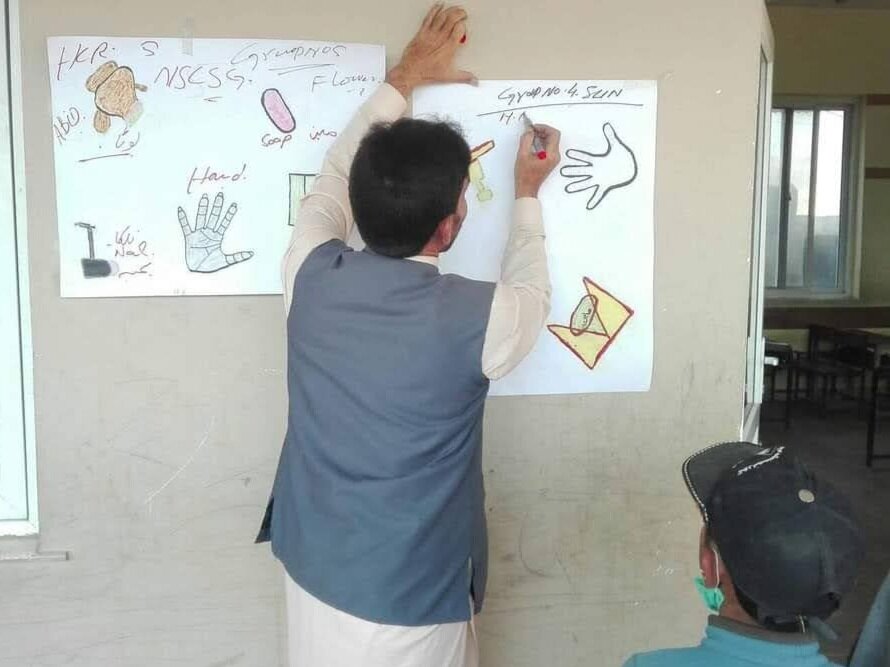To kick off a new year, we’ve changed some things around here. As of 1 January 2021, our HCR teams in the UK and Pakistan are operating as ‘Amplifying Voices’. Our Australian team will continue to be known as Health Communication Resources, and we continue to work together as an international family.
The Amplifying Voices teams have got a new name, new logo, new colours, new websites, and new stories! But why the change?
Health Communication Resources (HCR) was founded in 1996 as a health promotion organisation. The WHO defines health promotion as "the process of enabling people to increase control over, and to improve their health”. You could say, health promotion is amplifying voices - its what we've always done! The names Health Communication Resources and HCR have a well-established history among Australian public health service providers, and among the aboriginal communities in Western Australia where we work, so in Australia we will continue as Health Communication Resources or HCR.
However, the UK and Pakistan teams work in different contexts and had identified a need for a name that helps people to visualise how media projects help communities bring about changes in wellbeing, peacebuilding and resilience. The name ‘Amplifying Voices’ does paint a picture of communities being equipped to speak out and be heard in order to take the lead in their own development.
Different names, same family
Health Communication Resources (HCR) and Amplifying Voices (AmpVoices) continue to be part of the international HCR family.
HCR and Amplifying Voices continue to pursue our shared vision together as we seek to see communities live life in all its fullness, free from poverty, injustice, and conflict.
Our vision and values remain unchanged, we continue to be a family sharing a common commitment: we’re taking the same approach in using community-centred media to further our mission.
Whether in Australia or elsewhere, our role is to come alongside communities and listen. It’s then we can empower people to find what media solutions work in their local contexts. We help train partners and community members on how to use tools and strategies to their full potential so that the communities themselves can champion positive social change. This is our approach in every community-centred media project.
Why focus on community-centred media?
A typical community-centred media project brings together community members, service providers, and media organisations to create content. The media content can be anything from a social media video talking about protecting our mental health to an informal chat where a community member shares their story. It’s designed to tackle issues that are raised by the community. This, in turn, gets people talking about their ideas and opinions and helps people hear others’ hopes and concerns.
Our partners then use trusted communication channels to broadcast or distribute the content, to help them play a key role in mobilising inclusive, community-led initiatives. What’s important is that the community members play a key role in designing and voicing the messages and content.
Health communication happens best by amplifying community voices. Amplifying local voices is a proven, effective way to mobilise local resources for health communication.
What’s next?
As an international family we are currently working with eight projects, where community-centred media is making a positive impact. Exciting developments are happening in each of them, and we’d love to keep you updated as part of our supporting community! You can subscribe to sign up for our monthly newsletter, or help get more people involved by clicking the share link below. Go and do the same on Amplifying Voices UK and Amplifying Voices Pakistan site.
Thanks for joining us in this new chapter of the HCR International Family.


















